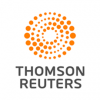UA Offers Early Training in Cybersecurity
After a successful pilot, a cybersecurity training camp developed at the University of Arizona and other institutions in the U.S. has been expanded to dozens more this summer with support from the National Security Agency and the National Science Foundation.
"GenCyber," a new partnership between the NSA and NSF, is a summer camp geared toward informing youths and their teachers about the emergent field of cybersecurity. The UA, along with universities in several other states, offered camps last summer, designing and building programs for expanded implementation. This year, 43 camps are being offered across the nation — in states that include Alaska, California, Illinois, Florida and New York — and the NSA and NSF intend to grow the program to 200 camps by 2020.
"This camp is about multiplying interest in cybersecurity," said William T. Neumann, a UA professor of practice in the Department of Management Information Systems, who leads the camp.
"Arizona GenCyber: A Career Awareness and Skills Capability-Building Cyber-Security Camp for Secondary Students and Teachers" will be held at Biosphere 2 from Sunday through July 18 and July 26-Aug. 1.
All told, 50 students and 10 teachers from schools across Arizona, including Tucson Unified, Vail, Sahuarita, Amphitheater, Tempe and Flowing Wells school districts, will attend the GenCyber camp. The program also will include Native American students and teachers from the Camp Verde district in central Arizona.
The UA camp, with student and faculty collaborators and mentors from computer science, management information systems, and electrical and computer engineering, provides exposure to the discipline and skills required to enter the field of cybersecurity. Participants will learn about cybersecurity theories and threats, deception, personal computing, cloud computing, privacy issues, social media platforms, mobile development and the UA's field-related programs. Students also will be organized into teams to complete experiential learning activities, such as a daily programming laboratory and a U.S. Cyber-Patriot-based competition, which will be facilitated by the undergraduate peer-mentors.








